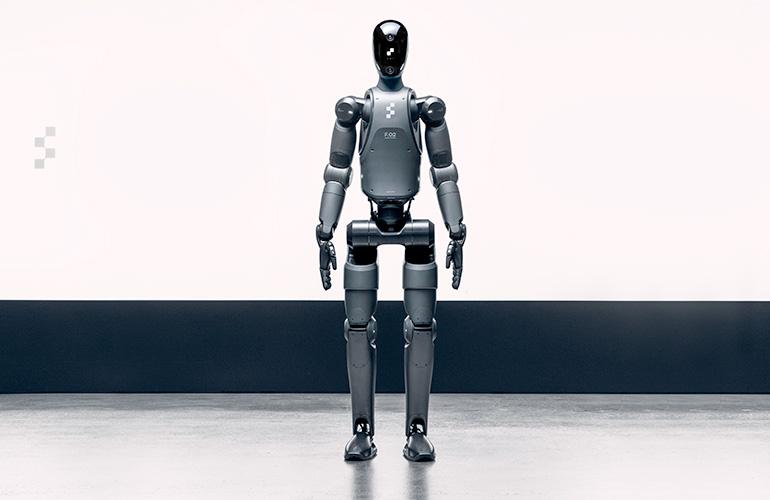Introduction
Social media algorithms have become an integral part of how we interact with content online. These algorithms determine what we see on our feeds, shaping our online experience and influencing our engagement. But how do they work, and what impact do they have on users and content creators?
What Are Social Media Algorithms?
A social media algorithm is a set of rules and calculations used by platforms like Facebook, Instagram, Twitter, TikTok, and YouTube to personalize content for users. These algorithms analyze various factors such as user behavior, interests, and engagement patterns to show the most relevant posts, videos, and updates.
Why Are Social Media Algorithms Important?
Social media algorithms play a crucial role in shaping online interactions and content discovery. Their importance can be understood in several ways:
- Personalization: Algorithms ensure that users see content that aligns with their interests, making social media more engaging and relevant.
- Content Discovery: They help users discover new accounts, topics, and trends based on their preferences and browsing history.
- Efficiency: Without algorithms, users would be overwhelmed with random or irrelevant content instead of curated posts tailored to their behavior.
- Engagement Optimization: By prioritizing highly engaging content, algorithms encourage meaningful interactions, boosting user retention on platforms.
- Monetization and Advertising: Social media platforms use algorithms to match ads with the most relevant audience, improving ad efficiency and business growth.
- Spam and Misinformation Control: Algorithms detect and reduce spammy or misleading content, improving the quality of information available online.
How Do Social Media Algorithms Work?
Each platform has its own unique algorithm, but they generally consider the following factors:
- Engagement – Posts with higher likes, comments, shares, and saves are prioritized.
- Relevance – Content that aligns with a user’s past interactions and interests is given preference.
- Timeliness – Recent posts often receive a higher ranking than older ones.
- User Behavior – The more time you spend engaging with specific content, the more likely similar content will appear in your feed.
- Relationships – Content from accounts you frequently interact with is given priority.
How Different Platforms Use Algorithms
Instagram Algorithm:
- Prioritizes content based on past interactions, engagement, and relationships.
- Uses AI to predict what users might find interesting and ranks posts accordingly.
- Reels are promoted based on watch time, shares, and replays.
- Stories appear based on recent engagement with an account.
Facebook Algorithm:
- Uses a ranking system that scores posts based on engagement, format, and recency.
- Prioritizes meaningful interactions such as comments and shares over passive engagements like likes.
- Prefers video content, especially live videos, for better organic reach.
Twitter Algorithm:
- Uses a mix of chronological order and engagement-based ranking.
- Shows “For You” tweets based on interests and past interactions.
- Gives priority to tweets with high engagement within a short time frame.
Advantages of Social Media Algorithms
- Enhanced User Experience: Algorithms personalize feeds, ensuring users see content relevant to their interests.
- Content Discovery: Helps users find new and engaging content that aligns with their preferences.
- Improved Engagement: Prioritizing high-quality and engaging content encourages meaningful interactions.
- Efficient Advertising: Businesses can target the right audience with precision, improving ad effectiveness.
- Spam Reduction: Algorithms filter out spam, fake accounts, and misleading content, enhancing platform credibility.
- Boosts Small Creators: Platforms like TikTok and Instagram Reels give exposure to smaller creators if their content performs well.
Disadvantages of Social Media Algorithms
- Echo Chambers and Filter Bubbles: Users may only see content that reinforces their existing beliefs, limiting diverse perspectives.
- Decline in Organic Reach: Businesses and creators struggle to gain visibility without paid promotions.
- Overemphasis on Engagement Metrics: Prioritizing engagement can lead to sensationalized or controversial content.
- Algorithm Bias: AI-driven recommendations may unintentionally favor certain content while suppressing others.
- Privacy Concerns: Algorithms rely on user data, raising concerns about data privacy and security.
- Time Consumption: Users may spend excessive time scrolling due to the endless stream of recommended content.

Impact of Social Media Algorithms
For Users:
- Personalized Content: Users see content that aligns with their preferences.
- Echo Chambers s Filter Bubbles: Algorithms can limit exposure to diverse viewpoints.
- Time Consumption: Endless scrolling is encouraged by constantly refreshing engaging content.
For Content Creators:
- Organic Reach Challenges: High competition makes it difficult for posts to gain traction.
- Need for Consistency: Regular posting and audience interaction are essential for visibility.
- Adaptation to Trends: Content strategies must evolve based on algorithm updates.
How to Optimize Content for Social Media Algorithms
- Create High-Quality Content – Engaging visuals, compelling captions, and interactive elements attract more engagement.
- Encourage Interaction – Asking questions, using polls, and prompting discussions can boost engagement.
- Post Consistently – A regular posting schedule improves visibility.
- Use Relevant Hashtags – Helps content reach the right audience.
- Leverage Trending Topics and Hashtags Strategically – Posting content around trending topics increases discoverability. For example, during major events like the Olympics, using hashtags such as #TokyoOlympics or #GoldMedal can boost reach.
- Stay Updated on Algorithm Changes – Platforms frequently update their algorithms, requiring adjustments in strategy.
- Utilize Different Content Formats – Videos, carousels, and interactive posts often get more reach compared to single static images.
- Time Your Posts Effectively – Posting when your audience is most active increases engagement and visibility.
How AI Enhances Social Media Algorithms
Social media platforms rely heavily on artificial intelligence (AI) to refine their algorithms. AI helps in:
- Analyzing Large Data Sets: AI processes massive amounts of user data to predict behavior and improve recommendations.
- Detecting Fake Engagement: AI identifies bot activity, fake likes, and spam interactions to maintain content authenticity.
- Enhancing Personalization: AI continuously learns from user preferences, improving content curation.
- Automating Content Moderation: AI filters harmful or inappropriate content in real-time.
- Improving Ad Targeting: AI-driven algorithms ensure that advertisements reach the right audience with high precision.
Conclusion
Understanding social media algorithms is crucial for both users and content creators. While they enhance personalization, they also pose challenges like limited organic reach and echo chambers. By staying informed about algorithm updates, adapting content strategies, and leveraging AI insights, users can navigate social media platforms effectively and maximize their engagement.



